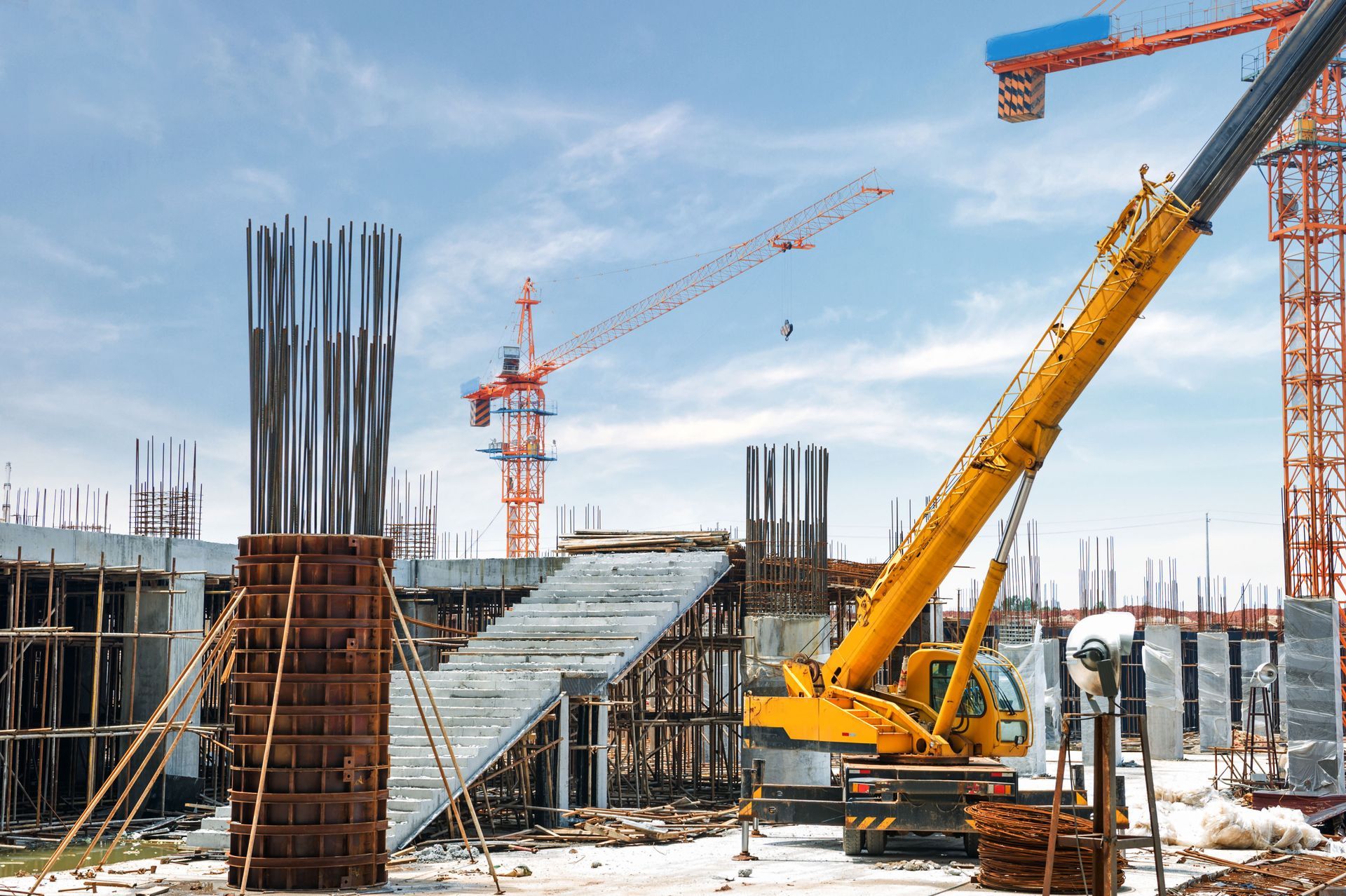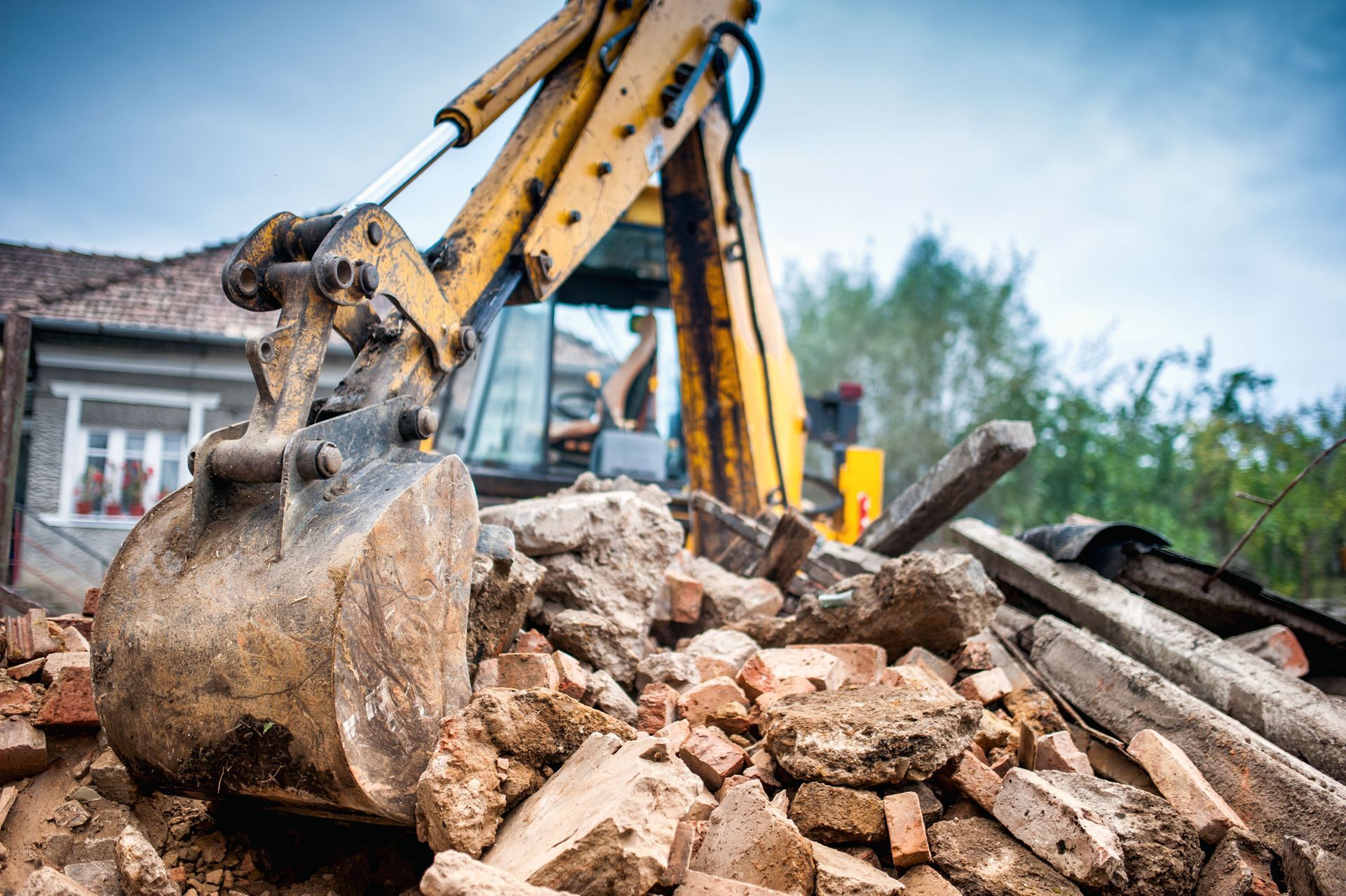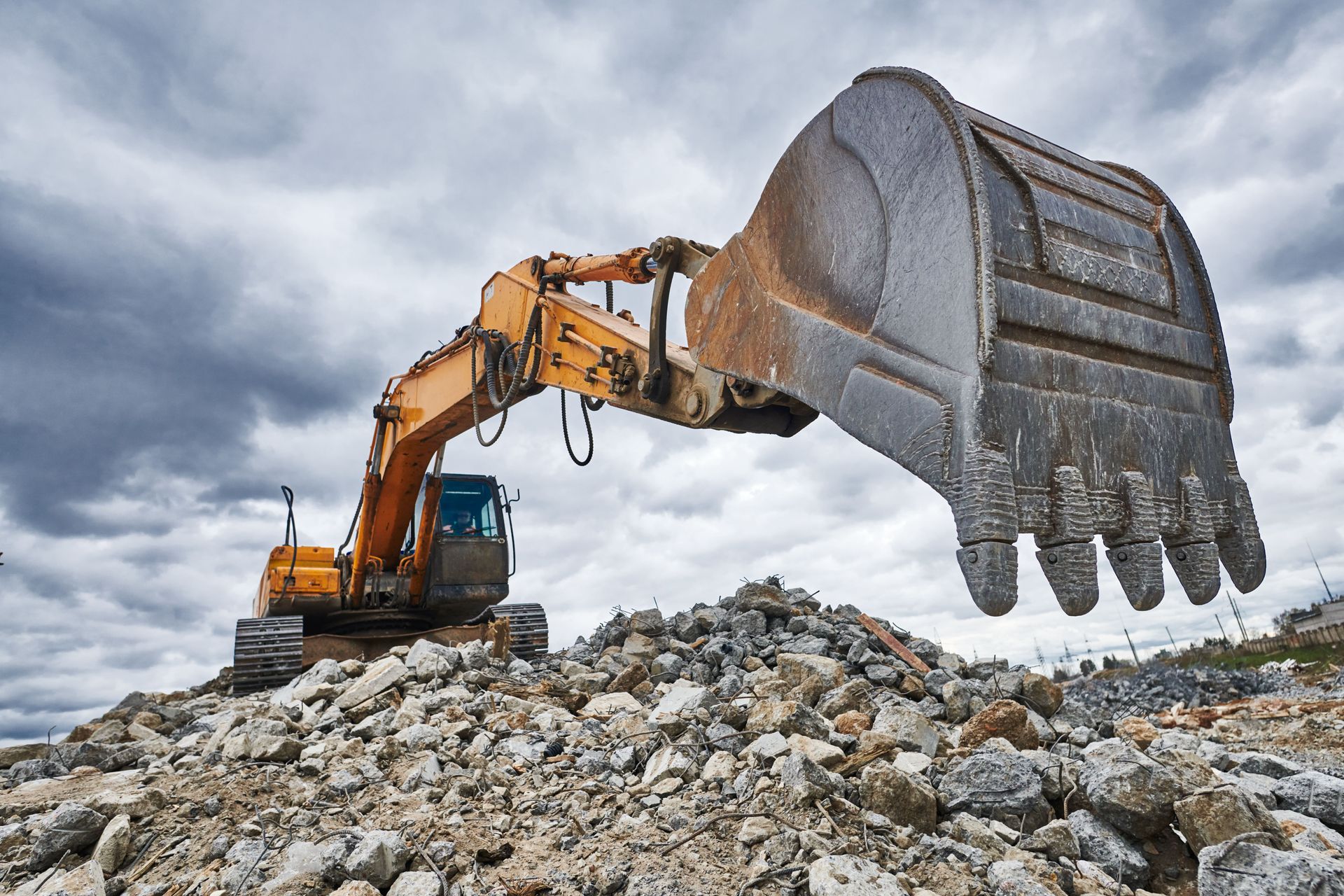October 16, 2025
Demolition contractors are often associated with the explosive and dramatic task of tearing down structures, but their expertise extends far beyond this single activity. In this article, we explore the diverse and essential roles demolition contractors play in the construction and environmental industries. We'll delve into their comprehensive scope of work that ensures safety, sustainability, and strategic readiness in various projects. Their role is integral for the seamless execution of building and development cycles, providing a foundation upon which new constructions can take shape. Ensuring due diligence in various phases of a project, their work often acts as a prerequisite to safer, environmentally-friendly building practices.
Section 1: Site Assessments and Pre-Demolition Planning
Environmental Impact Studies
The initial step in demolition involves conducting thorough environmental impact studies. These are necessary to gauge how the demolition of a structure will affect the surrounding ecology and community. Contractors must assess factors such as air and water quality, as well as the potential release of hazardous materials, like asbestos. By understanding the implications, contractors can devise methods to mitigate negative effects, ensuring compliance with environmental laws. This step is vital as it informs the development of protective measures and informs the public of any potential environmental disruptions.
Structural Integrity Assessments
Before a structure is demolished, contractors perform structural integrity assessments to determine its current state. This involves inspecting the building for weaknesses or vulnerabilities that might affect demolition strategies. Contractors need to ensure that the method selected for demolition is appropriate and safe, particularly in urban settings where nearby structures could be impacted. By understanding a building's structural integrity, they can better plan the logistics of the demolition and manage risks. These assessments are crucial for avoiding accidents and ensuring the safety of both the demolition crew and the public.
Project Feasibility Analysis
Project feasibility analysis encompasses determining the overall viability and cost-effectiveness of the demolition project. Economic, logistical, and technical factors are examined to decide whether the project should proceed. Contractors analyze factors such as the presence of asbestos, potential environmental hazards, and the structural challenges posed by the building. By doing so, they provide a blueprint that will guide the demolition process, optimizing resources and time. This analysis ensures that clients are fully aware of potential hurdles and can plan accordingly, ensuring project success without unexpected setbacks.
Cost Estimation & Budget Planning
Cost estimation is one of the primary responsibilities of a demolition contractor prior to commencement. This involves calculating expenses regarding labor, equipment, permits, and waste removal. It is a crucial step since, according to Fixr, tearing down a house may require as many as 60 dumpster loads, depending on factors like the home’s size, the demolition method, and dumpster capacity. Contractors must plan for such variables, presenting a comprehensive budget that provides transparency for stakeholders. Budget planning is vital in avoiding cost overruns and ensuring that the project remains financially feasible.
Development of Safety Protocols
Safety protocols are central to any demolition plan to protect workers and the public. Contractors develop specific safety measures tailored to the project’s scale and complexity. This involves training personnel on emergency procedures, ensuring the use of personal protective equipment, and erecting barriers around the site to prevent unauthorized access. Regular safety drills are conducted to keep the team prepared for potential emergencies. By committing to rigorous safety standards, demolition contractors can guarantee that operations are conducted safely, minimizing the risk of injuries or accidents.
Section 2: Environmental Stewardship and Recycling Initiatives
Deconstruction & Material Salvaging
Deconstruction is a sustainable alternative to traditional demolition, emphasizing the careful dismantling of structures to preserve reusable materials. Contractors identify salvageable components, such as bricks, lumber, fixtures, and appliances, which can be repurposed or sold. This not only reduces waste but also provides economic benefits by selling these materials or using them in new construction projects. Through deconstruction, contractors minimize the volume of debris sent to landfills, promoting environmentally responsible practices. Opting for deconstruction over simple demolition aligns with growing trends in sustainable building and conservation.
Asbestos and Hazardous Material Removal
Prior to demolition, identifying and removing hazardous materials, such as asbestos, is imperative for safety. Contractors are trained in handling and disposing of hazardous substances in compliance with strict regulatory standards. This process involves sealing areas to prevent contamination, employing specialized equipment, and ensuring safe disposal at designated facilities. Failure to manage these materials appropriately can result in health risks and legal liabilities. By emphasizing the safe handling of hazardous waste, demolition contractors protect their teams, the public, and the environment from harmful exposure.
Sustainability Practices
Sustainability is at the forefront of modern demolition practices, guiding contractors to adopt greener methodologies. From using advanced machinery with lower emissions to implementing energy-efficient processes, contractors strive to reduce their environmental footprint. Sustainability also involves selecting demolition methods that minimize disruption to wildlife and ecosystems. Educational programs for workers on environmental stewardship further contribute to this cause. By prioritizing sustainability, demolition contractors align with global environmental goals, contributing to industry-wide improvements in environmental responsibility.
Recycling and Reusing Materials
Recycling is an integral part of the demolition process that helps manage waste effectively. By separating materials like concrete, metals, glass, and wood during demolition, contractors contribute to significant waste reduction. These materials can be recycled into new products, used in construction projects, or sold to resourcing companies. Establishing partnerships with recycling facilities enables contractors to divert vast amounts of demolition debris from landfills. Recycling efforts also reduce overall project costs, offering environmental and economic benefits that are invaluable to sustainable development.
Waste Management Strategies
Efficient waste management involves strategic planning to deal with large volumes of debris generated during demolition. Implementing comprehensive strategies, contractors focus on reducing, reusing, and recycling waste wherever feasible. They coordinate with waste management companies to streamline removal processes and comply with local waste disposal regulations. Advanced planning ensures that projects adhere to sustainability standards and manage environmental impact responsibly. Through these meticulous waste management practices, demolition contractors support cleaner, greener cities and contribute to circular economies.
Section 3: Navigating Complex Regulations and Permitting
Understanding Local, State, and Federal Laws
Demolition projects are subject to a myriad of local, state, and federal regulations, which contractors must navigate expertly. These regulations dictate various aspects of the demolition process, including safety standards, waste management, and environmental care. Contractors invest time in understanding legal requirements to ensure compliance and avoid potential litigation. Updated knowledge of legislative changes is necessary, as non-compliance can result in fines or project suspension. As such, expertise in regulatory frameworks is essential for the successful execution of demolition operations.
Obtaining Necessary Permits
No demolition project can proceed without obtaining the necessary permits from the appropriate authorities. Contractors must prepare detailed plans addressing the scope of work, methods, safety measures, and environmental contingencies to secure approvals. Permitting involves liaising with governmental departments and ensuring that all documentation is comprehensive and accurate. Obtaining permits can be lengthy, requiring efficient coordination and communication to expedite processes. Without these authorizations, projects are at risk of legal setbacks that can stall progress and increase costs
.
Beyond the explosive imagery associated with their name, demolition contractors are integral to the lifecycle of construction and development projects. Their work encompasses environmental care, regulatory navigation, advanced technological applications, and strategic partnerships. Their contributions not only ensure the seamless continuation of projects but also promote sustainable practices that benefit both the environment and the economy. Understanding their multifaceted role emphasizes the importance of their expertise in the broader construction industry. In recognizing their diverse capabilities, stakeholders can better appreciate the nuanced and valuable role of demolition contractors in facilitating innovation and progress. Be sure to reach out to RVA Hauling & Demo today for more information on our professional demolition contractor!






